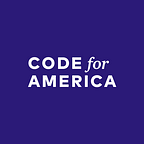Restoring opportunity, delivering on the promise voters intended
DA Gascón teams up with Code for America to automatically reduce eligible marijuana convictions in San Francisco & beyond
Today, San Francisco District Attorney George Gascón was joined by Code For America Executive Director Jennifer Pahlka to announce a cutting-edge partnership to use technology to automatically clear eligible convictions. The partnership will begin with a pilot program to clear convictions eligible under Proposition 64 (marijuana legalization) in San Francisco.
“When the government uses 20th century tools to tackle 21st century problems, it’s the public that pays the price,” said District Attorney George Gascón. “California has decriminalized recreational cannabis use, but a marijuana conviction continues to serve as a barrier to employment, housing, student loans and more. Lack of access to employment and housing are two primary drivers of recidivism, so until we clear these records it’s government that is effectively holding these people back and impeding public safety. I’m hopeful that this partnership will inspire many prosecutors who have cited resource constraints to join this common sense effort and provide this relief.”
“At Code for America, we believe government can work dramatically better than it does today, and the criminal justice system is one of the areas where we are most failing the American people,” said Jennifer Pahlka, Founder and Executive Director, Code for America. “By reimagining existing government systems through technology and user-centered design, we can help governments rethink incarceration, reduce recidivism, and restore opportunity. Code for America, in partnership with the San Francisco District Attorney’s Office, will remove barriers to employment, housing, health, and education for thousands of Californians, and demonstrate that our institutions can deliver on the promise voters intended when they passed propositions like Proposition 64.”
Multiple studies have found that rates of drug use and drug sales are commensurate across racial lines. In particular, African American and Latino communities interact with the criminal justice system, including via arrests, bookings, and incarceration, at a rate far higher than their Caucasian counterparts. Recognizing that the communities who stood to benefit most from the expungement provisions of Proposition 64 were the least able to afford an attorney in order to access the relief contemplated by the voters, in January, SFDA was the first office in the country to announce that it was proactively dismissing and reducing up to approximately 8,000 old marijuana convictions. Since then, from Seattle to Philadelphia, District Attorneys and City Attorneys across the country have pledged to reduce or dismiss hundreds of thousands of old marijuana convictions. Still, many well-meaning DAs who would like to provide this relief have cited resource constraints as inhibiting their ability to join this commonsense effort.
Since late January, SFDA has been pulling old files and filing paperwork to dismiss misdemeanor convictions. As of Monday, May 14th, 962 motions to dismiss a misdemeanor marijuana conviction have been prepared, 528 have been submitted to the San Francisco Superior Court, and 428 have been granted. The felony convictions, however, take much more time as they require an analysis of rap sheets in order to make eligibility determinations. Recognizing how resource intensive the process was, DA Gascón and Code for America began discussions in February to explore the possibility of automating the process.
Through this partnership with the San Francisco District Attorney’s Office, Code for America will, for the first time, pilot a product that allows a government agency, like a district attorney’s office, to determine eligibility for record clearance under state law, automatically fill out the required forms and generate a completed motion in PDF format. SFDA will then proceed to file the completed motion with the court. The process will be applied to all 4,940 felony marijuana convictions dating back to 1975.
The successful pilot will seamlessly clear criminal records under Prop. 64 for all individuals, with no action required on the part of the individual and with minimal staff time and resources from the SFDA’s office.
SFDA is the first District Attorney’s Office to partner with Code for America and the first prosecutor’s office to pilot this technology. Code for America plans to expand the pilot to 3 to 5 other California counties with the target of clearing 250,000 convictions by 2019. The organization plans to expand the uses of this approach to other record clearance needs and additional counties in the future.
About Code for America
Code for America uses the principles and practices of the digital age to improve how government serves the American public, and how the public improves government. Code for America helps government work as it should in a digital age, starting with the people who need it most.
Code for America’s criminal justice work aims to transform the way government delivers services to those most impacted by the justice system. Some examples of their criminal justice work includes Clear My Record, an online application that connects individuals with lawyers to clear criminal records across California, and ClientComm, a tool that helps to reduce incarceration and support positive outcomes for justice-involved people by providing two-way communication between case managers and individuals on community supervision.
About Clear My Record
Code for America’s vision for Clear My Record is to make it possible for government to automatically clear all eligible criminal records. In this way, they support re-entry and decriminalization efforts across the U.S. by removing barriers to employment, housing, health, and education.
Since April 2016, Clear My Record has been making it easy for people who are eligible to reduce or remove low-level convictions from their records. Clear My Record has connected 7,000 people with attorneys in 14 counties across California, which services 32% of the state’s population. For individual users, the mobile-friendly service takes eight minutes to complete, instead of having to spend upwards of six hours waiting at legal clinics, courts, and other government offices to submit an application.
Learn more about our work on Clear My Record and donate to support justice at scale: codeforamerica.org/justiceatscale.
